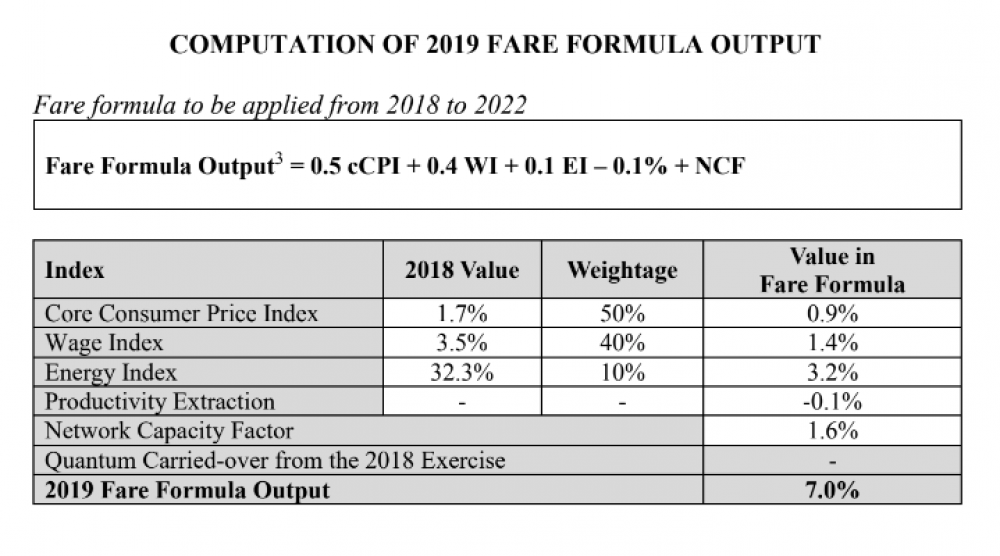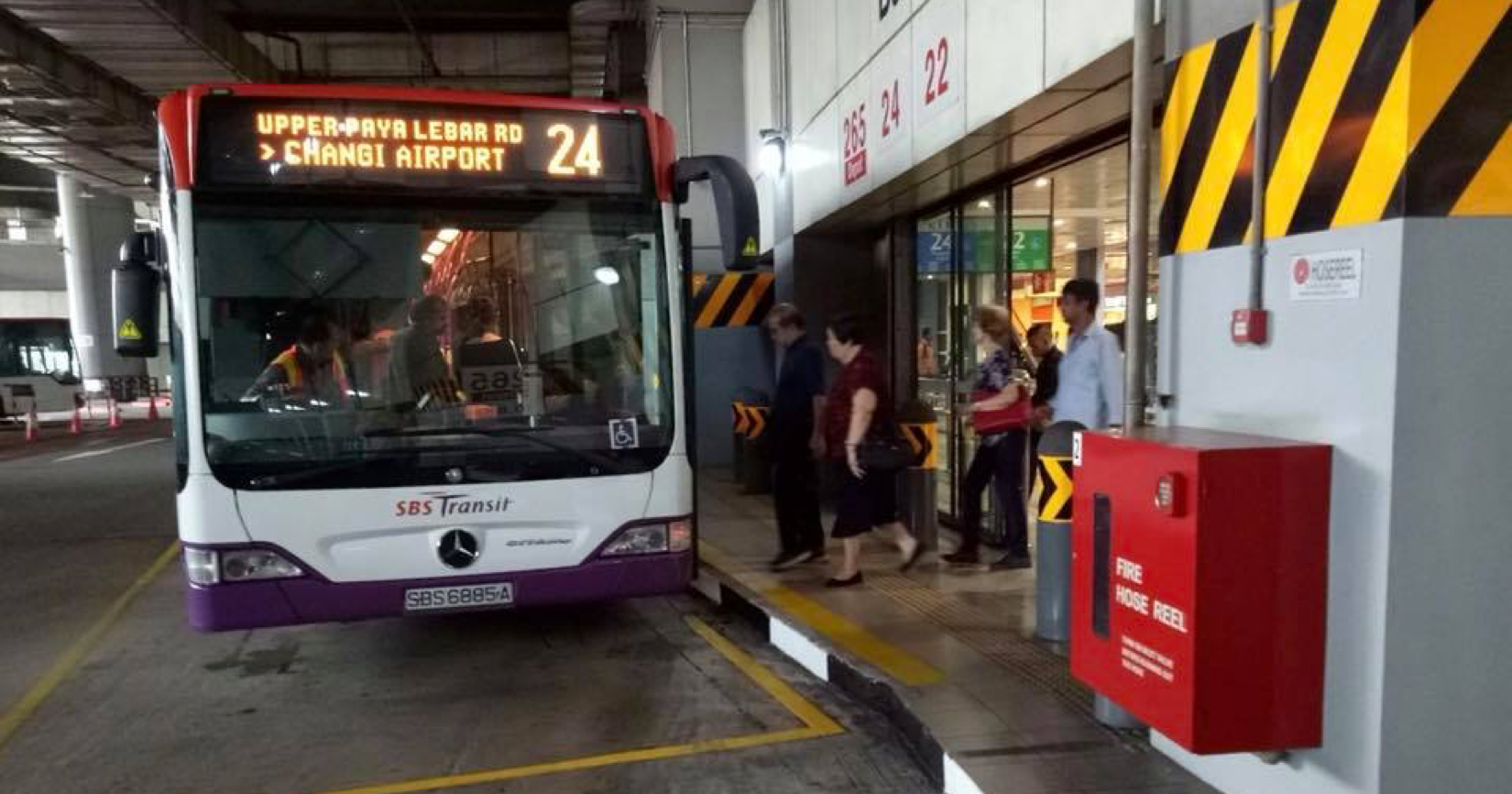The Public Transport Council (PTC) announced on Tuesday (Sep. 3) that they have commenced their annual Fare Review Exercise (FRE) for 2019.
Based on the Council's fare formula, applicable from 2018 to 2022, the maximum allowable fare adjustment quantum for this year will be 7 per cent.
This, according to PTC member Vincent Chua, an associate professor at the Singapore University of Social Sciences, will translate to no more than 10 cents in card fares — this figure having been extrapolated from last year's fare review exercise, which resulted in a maximum 6 cent increase in card fares when fares went up by 4.3 per cent:
Public transport operators may now submit their fare applications (i.e. they can hand in requests to raise their fares) to the Council by Sep. 23.
What the announcement means is operators will not be able to apply for an increment in fares of more than 7 per cent.
How this figure was derived
Here's how the latest fare formula works, which was announced in March 2018:
The Council broke down the factors making up this year's pretty high-looking allowed increase:
1. Core consumer price index
This rose by 1.7 per cent, the highest in four years.
2. Wage Index
This is a proxy for the wage growth of public transport workers, which rose by 3.5 per cent.
3. Energy Index
This is the biggest contributor to the increase in fares, as energy prices rose by 26.2 per cent in 2017, and 32.3 per cent in 2018.
4. Productivity extraction
This is based on half the productivity gain of public transport operators, which results in a downward adjustment of 0.1 per cent.
5. Network Capacity Factor
NCF measures capacity provision relative to passenger demand for the entire public transport system, and reflects the effort to provide commuters with less crowded rides over the last year. This stands at 1.6 per cent.
Here's how it all shakes out:
 Table provided by Public Transport Council.
Table provided by Public Transport Council.
Improvements made, but cost of operation has gone up
The Council noted that improvements have been made to our public transport over the last five years:
- More than 1,000 buses and 200 trains were added.
- Rail reliability improved, with the MRT network achieving an MBKF (Mean Kilometres Between Failure) of over 1,000,000 train-km.
However, it also observed that the cost of operating the public transport system has gone up.
"Last year, a fare adjustment of 4.3 per cent was granted. Over the last five years, the gap between costs and fares has been widening. This gap has, thus far, been funded by the Government together with the rail operators."
It also noted that fares were reduced by 8.3 per cent for three consecutive years (i.e. 2015, 2016 and 2017) due to the drop in energy prices back then.
Final decision to be made in Q4 2019
The PTC said it will also consider the views of commuters and other relevant stakeholders to "strike a fair balance between fare affordability and the financial sustainability of the public transport system".
Additionally, it also said it would pay special attention to groups on concessions, as well as needy commuters.
It will announce its final decision in the last quarter of 2019.
Related stories:
Top image via SBS Transit Ltd's Facebook page
If you like what you read, follow us on Facebook, Instagram, Twitter and Telegram to get the latest updates.
